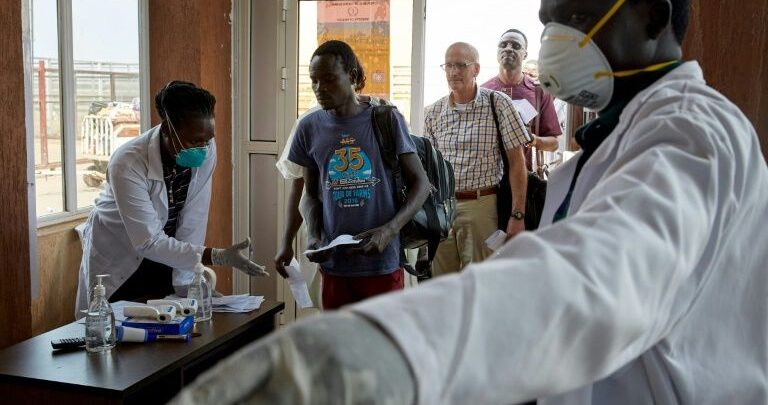South Africa
South Africa: Coronavirus Cases Cross 300,000 Mark Despite Early Lockdown

South Africa’s coronavirus cases crossed 300,000 mark late on Wednesday, which represents nearly half of all the confirmed cases on the African continent, reported Reuters. The country now has the most number of coronavirus cases in Africa and comes in the top 10 in the world.
President Cyril Ramaphosa had taken early action and imposed a strict lockdown in South Africa in the end of March, when the country had only 400 cases and no recorded deaths. However, later, the government eased many curbs over fears for its struggling economy that resulted in a spike in the number of coronavirus cases.
Africa’s most industrialised nation has 311,049 cases at the last count, and with positive tests now increasing at a rate of more than 10,000 a day. 4,453 people already lost their lives due to the deadly virus, while 160, 693 people have recovered so far. The death toll is expected to rise in the coming days as there is shortage of oxygen and hospital beds. Some scientists had predicted up to 50,000 deaths.
As South Africa is currently accounting for the world’s fourth-largest daily increase in coronavirus cases, Ramaphosa reimposed an alcohol ban and a night curfew in the country on Sunday.
On Wednesday, Ramaphosa said that the whole country was now considered a hotspot.
“The whole country is a hotspot on its own, including a number of areas where we thought the rate of infection would not be as big as in other areas,” the president said during his second imbizo with South Africans.
He said that without a cure or vaccine, there was no telling how long this virus would be with us.
According to a study by South Africa’s Coronavirus Rapid Mobile Survey (CRAM) released on Tuesday, about half of South Africans live in poverty, about a third is unemployed, and some 3 million have lost their jobs since the lockdown began.
According to health officials, in many parts of the country, COVID-19 wards are packed, so patients are spilling out into other bits of hospitals and into tents outside.






